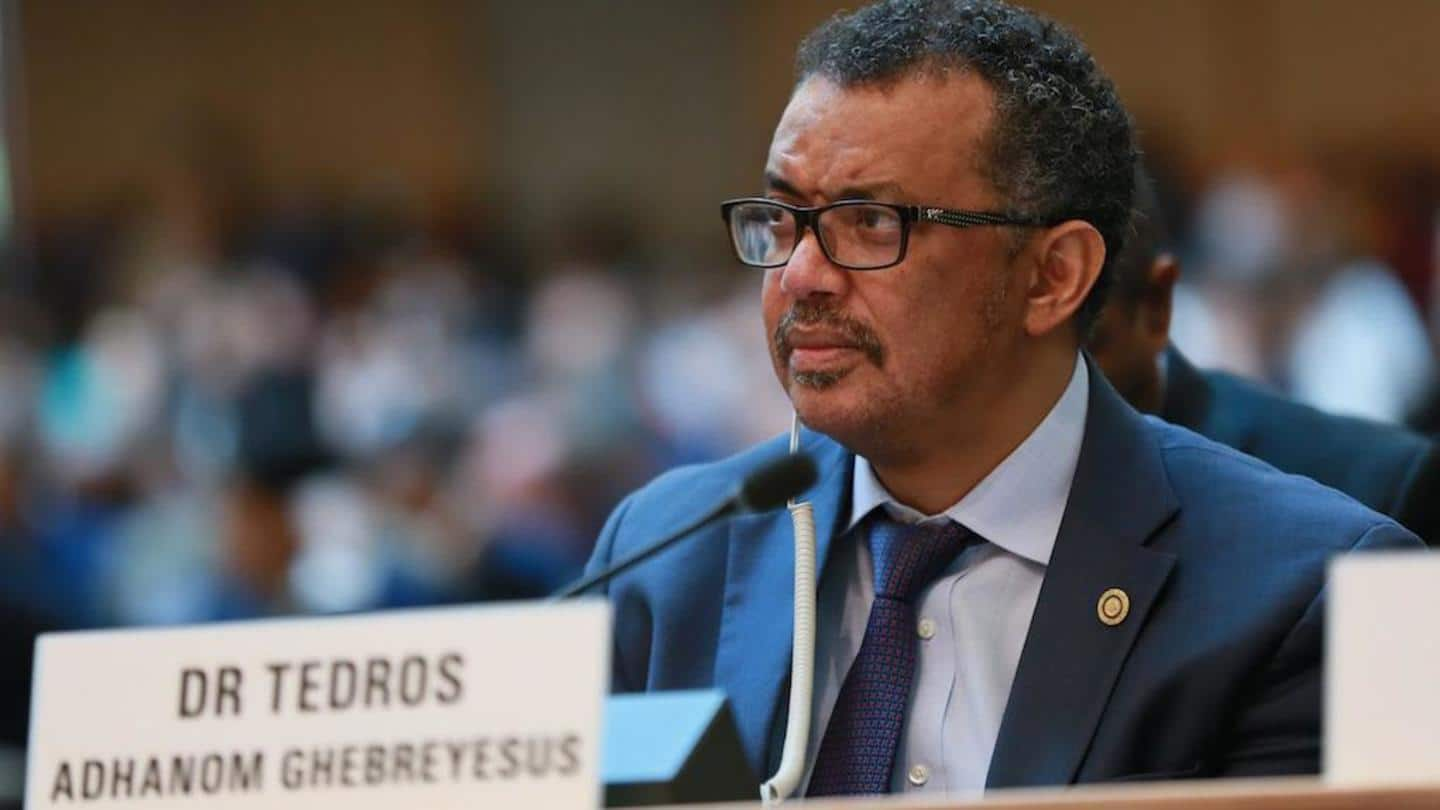
COVID-19 pandemic a long way from over, says WHO chief
What's the story
Even though more than 780 million doses of the COVID-19 vaccine have now been administered globally, the pandemic is a long way from over but it can be brought under control in months with proven public health measures, World Health Organization chief Tedros Adhanom Ghebreyesus has said.
The coronavirus has infected more than 136,500,400 people and killed over 2,944,500 people across the world.
COVID-19 numbers
COVID-19 cases have increased for seven consecutive weeks worldwide
In January and February, the world saw six consecutive weeks of declining cases. We have now seen seven consecutive weeks of increasing cases, and four weeks of increasing deaths.
Last week was the fourth-highest number of cases in a single week so far. Several countries in Asia and the Middle East have seen large increases in cases, WHO Director-General Ghebreyesus said.
COVID-19 spread
Coronavirus is not a flu, says Ghebreyesus
"Physical distancing works. Masks work. Hand hygiene works. Ventilation, surveillance, testing, contact tracing, isolation, supportive quarantine, and compassionate care, all work to stop infection," Ghebreyesus added.
He voiced concern that confusion, complacency, and inconsistency in public health measures and their application are driving transmission and costing lives. Cautioning that the disease is not flu, he said young, healthy people have died from the coronavirus.
Control
COVID-19 virus can be controlled and stopped: Ghebreyesus
"We still don't fully understand the long-term consequences of infection for those who survive. Some people appear to be taking the approach that if they are relatively young, it doesn't matter if they get COVID-19," Ghebreyesus said.
He added, "The decline in cases and deaths during the first two months of the year shows that this virus and its variants can be stopped."
Vaccines
Global manufacturing is insufficient to deliver quick, equitable vaccines
With a concerted effort to apply public health measures alongside equitable vaccination, the pandemic can come under control in months. Ghebreyesus said, "Whether we do or not comes down to the decisions and the actions that governments and individuals make every day."
The top WHO official noted that currently, global manufacturing is insufficient to deliver quick, equitable vaccines and other essential health products.
COVID-19 vaccination
WHO has established a COVAX manufacturing task force
Ghebreyesus stressed the importance of investing in sustainable domestic manufacturing capacity and national regulatory authorities. He asserted that what can be done today, should be done.
WHO and its partners have established a COVAX manufacturing task force, to increase supply and build a sustainable vaccine manufacturing platform. The UN agency's technical assistance is available in assessing the feasibility of local production and technology.